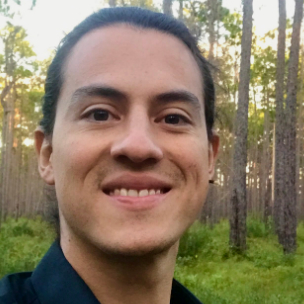“Intellectual Property Rights (IPRs) are rights endowed and enforced by juridical institutions to protect a person’s exclusive use of a legally endorsed creation. They encompass patents, trademarks, copyrights, and trade secrets. While IPRs’ eligibility criteria comprehensively assess the suitability of a postulated invention for legal rights, they favor general knowledge over Indigenous Local Knowledge (ILK) creations and often disregard ILK contributions to general knowledge creations.”
Intellectual Property Rights: Advancements and Future Prospects in Ayahuasca research.
“While IPRs’ eligibility criteria comprehensively assess the suitability of a postulated invention for legal rights, they favor general knowledge over Indigenous Local Knowledge (ILK) creations and often disregard ILK contributions to general knowledge creations.”
Transcript Abstract
Intellectual Property Rights (IPRs) are rights endowed and enforced by juridical institutions to protect a person’s exclusive use of a legally endorsed creation. They encompass patents, trademarks, copyrights, and trade secrets. While IPRs’ eligibility criteria comprehensively assess the suitability of a postulated invention for legal rights, they favor general knowledge over Indigenous Local Knowledge (ILK) creations and often disregard ILK contributions to general knowledge creations. Despite the broad recognition of ILK value, Western institutions still deem ILK as ‘unscientific’ or common heritage and employ this notion to justify the reluctance to recognize and confer IPRs to ILK. Unlike general knowledge, ILK exhibits problems with its precise differentiation, group identity and legal status, and well-developed markets, further complicating its recognition of IPRs. Moreover, IPRs are difficult and expensive to obtain, monitor, enforce, and preserve. As a result, IPRs have historically favored powerful economic groups’ creations in industrialized countries to the detriment of Indigenous peoples’ innovations and knowledge contributions, especially in developing nations. Rather than questioning ILK’s legitimacy, institutions urgently need to challenge and fix IPRs’ unequal function. In this talk, I problematize academia’s historical stance in Indigenous IPRs’ history, particularly the role of ethnobotany in Yajé (a.k.a., Ayahuasca) – Banisteriopsis caapi (Spruce ex Griseb.) C.V. Morton– applications, biopiracy, and bioprospecting. Then, I review institutions and measures that have been recently leveraged at regional, national, and international levels to provide and enforce Indigenous peoples’ economic and moral benefits for their knowledge applications. Finally, I call forth the active involvement of ethnobotany and academia in addressing the IPRs inequality challenges for Indigenous Yajé knowledge owners. I conclude by suggesting the application of measures in academia that may contribute to accomplishing Indigenous Yajé knowledge owners’ equality and the recognition of their IPRs.

